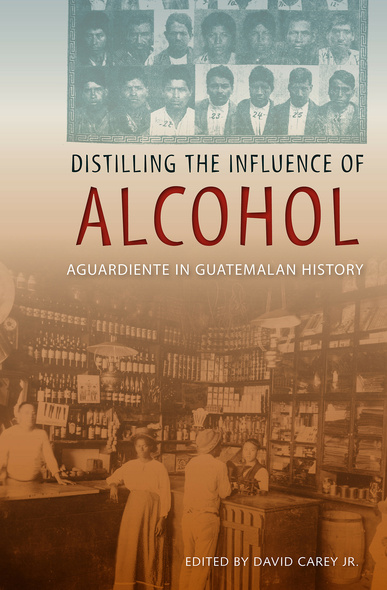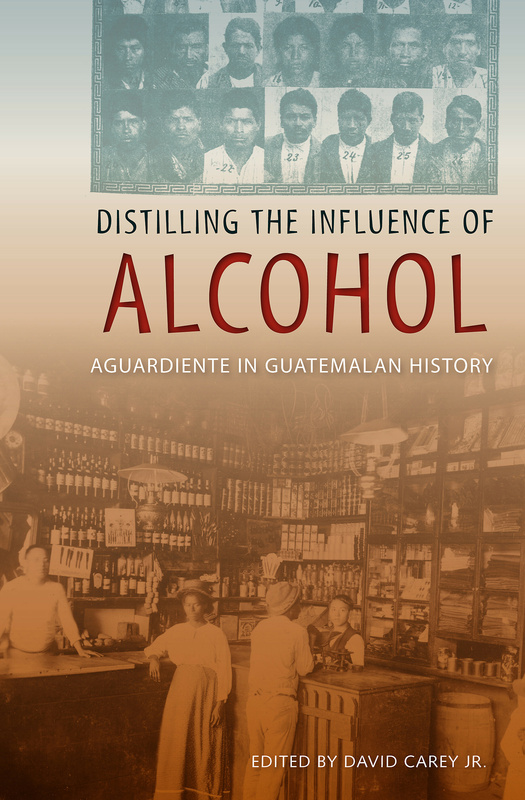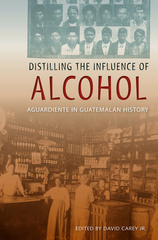
Distilling the Influence of Alcohol
Aguardiente in Guatemalan History
Sugar, coffee, corn, and chocolate have long dominated the study of Central American commerce, and researchers tend to overlook one other equally significant commodity: alcohol. Often illicitly produced and consumed, aguardiente (distilled sugar cane spirits or rum) was central to Guatemalan daily life, though scholars have often neglected its fundamental role in the country’s development. Throughout world history, alcohol has helped build family livelihoods, boost local economies, and forge nations. The alcohol economy also helped shape Guatemala’s turbulent categories of ethnicity, race, class, and gender, as these essays demonstrate. Established and emerging Guatemalan historians investigate aguardiente’s role from the colonial era to the twentieth century, drawing from archival documents, oral histories, and ethnographic sources. Topics include women in the alcohol trade, taverns as places of social unrest, and tension between Maya and State authority. By tracing Guatemala’s past, people, and national development through the channel of an alcoholic beverage, Distilling the Influence of Alcohol opens new directions for Central American historical and anthropological research. Contributors: David Carey Jr. | Alvis E. Dunn | Virginia Garrard-Burnett | Frederick Douglass Opie | René Reeves | Stacey Schwartzkopf
An outstanding addition to our knowledge of Guatemala and the history of commodities.’—American Historical Review ‘Clearly shows how studying alcohol can shed new light on broader questions in Guatemalan and Latin American history, particularly regarding nation-building processes, and how these are shaped by issues of race, class, and gender.’—Hispanic American Historical Review ‘Perhaps its most arresting and thought-provoking finding is to remind us that, for better or worse, alcohol was one of the very few products or activities in Guatemala that continually forced the crossing of ethnic, gender, and regional boundaries.’—Journal of Latin American Studies ‘Engaging. . . . Articulate[s] the intimate historical, social, cultural, and political interrelationships between alcohol and Guatemala’s people and the way that Guatemalans used alcohol to facilitate ongoing gender, racial, and ethnic negotiations.’—Ethnohistory ‘Provides a wealth of historical data around unexpected gendered contestations against the state, debates over privatizations of public goods, and resilient cultural and class-based arguments repeatedly levied in order to challenge the morality of elites.’—Journal of Latin American and Caribbean Anthropology
David Carey Jr. is professor of history and women and gender studies at the University of Southern Maine and author of Engendering Mayan History: Kaqchikel Women as Agents and Conduits of the Past, 1875–1970 and Our Elders Teach Us: Maya-Kaqchikel Historical Perspectives.





